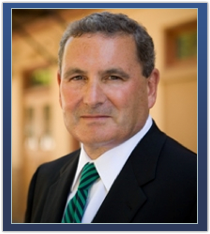I have written about this subject before, but the situation keeps reoccurring, and the “lesson” keeps repeating itself, so I will repeat myself: Do not represent yourself when you are under investigation by your licensing Board. Here are three recent examples of what can go wrong:
Example #1 – A pharmacist before the Oregon Board of Pharmacy
The first case involves an investigation by the Oregon Board of Pharmacy. In this case, the pharmacist met the standard of care expected of a pharmacist when presented with a suspect prescription. Unfortunately, the pharmacist was so focused on the mistakes made by others that he (1) declined to provide the Board with a written statement and (2) appeared for his recorded interview prepared to talk about the mistakes of others, and little else. The recorded interview went poorly, and the Board of Pharmacy issued a Notice of Proposed Disciplinary Action, threatening significant discipline, including probation and loss of pharmacist-in-charge (PIC). The pharmacist hired me soon thereafter. After completing my review, I find that the pharmacist had a near-perfect explanation (or defense) but, without the benefit of experienced legal advice, he failed to present that explanation when it mattered most.
Example #2 – A physician before the Oregon Medical Board
The second case involves an investigation by the Oregon Medical Board. In response to the Board’s request, the physician submitted a written statement that was too short given the subject matter of the Board’s concerns. The physician also appeared for her recorded interview before the Investigative Committee (IC) without adequate preparations. The physician hired me after the Board requested that she consent to (1) an Interim Stipulated Order (ISO) significantly restricting her practice, and (2), an Order for Evaluation subjecting her to an expensive, out-of-state assessment, of her ability to practice medicine. Although the Board’s requests may reflect poorly on the physician, with the benefit of my experience, I do not see the Board’s action as an accurate assessment of the situation, because I know the physician was unrepresented by legal counsel, and under prepared when it mattered most, i.e., when she submitted her written statement and when she attended her IC interview.
Example #3 – A nurse before the Oregon State Board of Nursing
The third case involves an investigation by the Oregon State Board of Nursing (OSBN). In this case, the Board of Nursing made several offers to settle the case but, without the benefit of experienced legal counsel, the nurse failed to appreciate that the Board’s settlement attempts were offered in an effort to avoid discipline. After several failed attempts to reach a compromise, the Board lost patience and voted to discipline the nurse, at which point, the nurse hired me. Even the simplest of cases can become difficult when the parties are polarized against one another.
The lesson: Do not represent yourself before your licensing Board
The three cases summarized above, involve three different licensing Boards, and three different situations where things went poorly for the licensee. In the first and second cases, the licensing Board sought serious discipline, and in the third case, the licensing Board sought minor discipline. The first case should have been easily defended and the third case should have been easily settled, while the second case needed to be developed and defended. All three cases, however, have one thing in common: The licensee mistakenly decided to proceed alone, without legal representation and, in each case, the licensee came to regret that decision. Do not make this mistake. If you are a licensed healthcare provider facing an investigation by your licensing Board, I urge you to seek legal counsel from an experienced healthcare defense attorney at the first opportunity.

